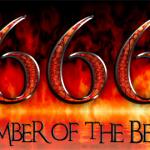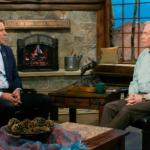Nicolae: The Rise of Antichrist; pp. 125-127, 132
The premise of the entire Left Behind series is right there in the title of the first book: Left Behind. It’s about separation and sorting. The children of God — the real, true Christians of the sort that God finds acceptable — are whisked off to Heaven, and everyone else is left behind.
That everyone else includes all the phony Christians, Jews, believers in every other religion and every nonbeliever. The lot of us will be given one last brief chance to convert to real, true Christianity before we will be killed by Jesus and tortured for all of eternity just as we deserve.
 It seems like that should be insulting. The authors, after all, are insisting that we are all utterly wicked and depraved and irredeemably evil. And then on top of that they continually suggest that we’ve all deliberately chosen such wickedness just for the sake of being wicked.
It seems like that should be insulting. The authors, after all, are insisting that we are all utterly wicked and depraved and irredeemably evil. And then on top of that they continually suggest that we’ve all deliberately chosen such wickedness just for the sake of being wicked.
Yet it’s hard to take offense at any of that because whenever they try to describe our alleged wickedness it never actually sounds that bad. None of us likes being called evil, but the word loses its sting once you realize that by “evil” all our accusers actually seem to mean is that we go to the wrong church, or to a synagogue instead of a church, or that we don’t go to church. Or they mean that we prefer peace to war, or that we look favorably on the idea that people in the developing world might not be quite so poor. Or … well, that’s pretty much it.
The authors classify most of the world as evil, but then their definition of evil turns out to be mostly benign. Once in a while they’ll spice it up a bit by suggesting that we’re all marauding criminals, but even then it doesn’t seem like they have much of an idea of what that means either, and they never sustain the idea for very long.
This thin notion of evil gets even stranger on the rare occasions that something actually happens in these books. Every few hundred pages or so there’s an airplane crash, or a bombing. And then, invariably, we’re shown a scene in which all of the “evil” people are scurrying about trying to aid the wounded or to rescue those in danger, while our virtuous heroes pass by, scarcely pausing to notice except perhaps to complain about the way this sudden outbreak of human suffering inconveniences their plans.
Given that, being classified among the evil and the wicked seems nothing at all like an insult. It seems more like a badge of honor.
I think this all flows out of the authors’ misunderstanding of the idea of “worldliness.” For them, to be “worldly” is to be evil. And thus to be good is to avoid “the world” — to shun it lest it’s contaminating contagion of “worldliness” infect them with its evil.
For a sense of what this means, let’s look at two ways of responding to this passage from the book of James:
Religion that is pure and undefiled before God, the Father, is this: to care for orphans and widows in their distress, and to keep oneself unstained by the world.
For LaHaye and Jenkins, the emphasis there is on being “pure and undefiled” and “unstained by the world.” That’s the priority, and thus for them that other bit about “care for orphans and widows” is perilous — touch an orphan or a widow and you risk becoming “stained by the world.” The orphans and widows business thus becomes, in this view, a kind of optional extra credit, something that’s nice to do, but only provided that one has a chance to do so while still ensuring that one keeps pure, undefiled and unstained by their worldliness.
And thus the authors wind up with the ideal of the Christian life presented in this series, that of Irene Steele, by-stander to the world, who spends all of her time sheltered at home or in church, praying and making “knick-knacks” and shielding her undefiled purity until “Jesus comes back to get us before we die.”
The alternative approach is to read James’ words through the lens of his brother. If we consider this same passage in that light — in the light of Jesus’ words, example and commandments — then we read it with a different emphasis. The idea then becomes something more like this:
Religion that is pure and undefiled before God, the Father, is this: to care for orphans and widows in their distress, and thereby to keep oneself unstained by the world.
From this view, James isn’t telling us to keep “undefiled” and also to “care for orphans and widows,” he’s telling us to keep undefiled by means of caring for orphans and widows. “Worldliness,” in other words, means not caring for those in need.
Viewed in that light, Rayford Steele and Buck Williams and Tim LaHaye and Jerry Jenkins all seem deeply marked by the stain of the world.
For the authors, then, the whole point of life is to avoid “worldliness” and contamination from “the world.” Or, in other words, the whole point of life is to avoid the world — a view that mutually reinforces the escapist eschatology of Rapture-mania.
Part of what this means is that the authors have steadfastly avoided learning about the world.
And that’s unfortunate for their novel, given that the world is where it’s supposed to take place.
This muddles up the section of Nicolae that we’re looking at today in at least two ways. First it means that we’re reading an attempt to describe a detailed agenda for the world written by two men who have scrupulously avoided learning anything about that world or how it works. And second we’re reading an attempt to describe evil government written by two men who equate evil with “worldly,” and thus have no basis for imagining the possibility of good government.
Don’t misunderstand me — I’m not referring to the perennial ideological debate between those who favor larger or smaller government in various capacities and roles. What I mean is that government, by definition, must be worldly. It has to be concerned with the world — that’s its job. Filling in potholes, maintaining traffic safety — everything the government does or is supposed to do will be worldly, no matter how mundane. (That’s actually what “mundane” means — “belonging to the world.”) And therefore everything a government does or is supposed to do will be self-evidently wicked.*
Thus here we’re presented with a scene in which the Antichrist — purportedly the worst tyrant in the history of the world — lays out his agenda for global oppression, yet much of it seems either boring or baffling. He proposes some modest taxes and some impossibly ill-defined ones. He wants to build a second Alaskan pipeline. He offers some extremely vague and contradictory ideas about the structure of his new one-world government (tyranny administered via “bloc grants,” apparently).
All of this is, to the authors, self-evidently evil because it’s all so very worldly. But to readers who are better acquainted with the actual world, the few bits of it that make any sense seem unremarkable and unthreatening. The gist of the passage seems to be that Nicolae Carpathia’s one-world government intends to govern.
Toward the end of the chapter, Nicolae does recommend some actual evil policies, which we’ll try to make sense of next week, but let me skip ahead to the last page of the chapter just to look at Rayford’s reaction after listening in on all of the Antichrist’s plans:
All Rayford could do was pray. “Lord,” he said silently, “I wish I was a more willing servant. Is there no other role for me? Could I not be used in some sort of active opposition or judgment against this evil one? I can only trust in your purpose. Keep my loved ones safe until we see you in all your glory.”
Even Rayford Steele is frustrated by the impotent idleness of a faith that consists only of avoiding the contamination of worldliness. Even he wishes he had some “other role” besides that of feckless bystander. Even he wishes his faith demanded something more “active.”
But in the end, he submits to the authors’ will, trusting that it is God’s purpose that he have no purpose. And praying that he and his loved ones stay safe and unsullied until Jesus comes back to get them before they die.
– – – – – – – – – – – –
* Tip-toe up to the ledge with me and take a moment to appreciate how deep and how far this goes. This is how we wound up with a subculture for which the word “secular” is a synonym for evil rather than just a necessary term for the temporal, mundane realm of the world we live in. This affects and infects a great deal of American politics. OK, careful now, let’s step back from the ledge.
















